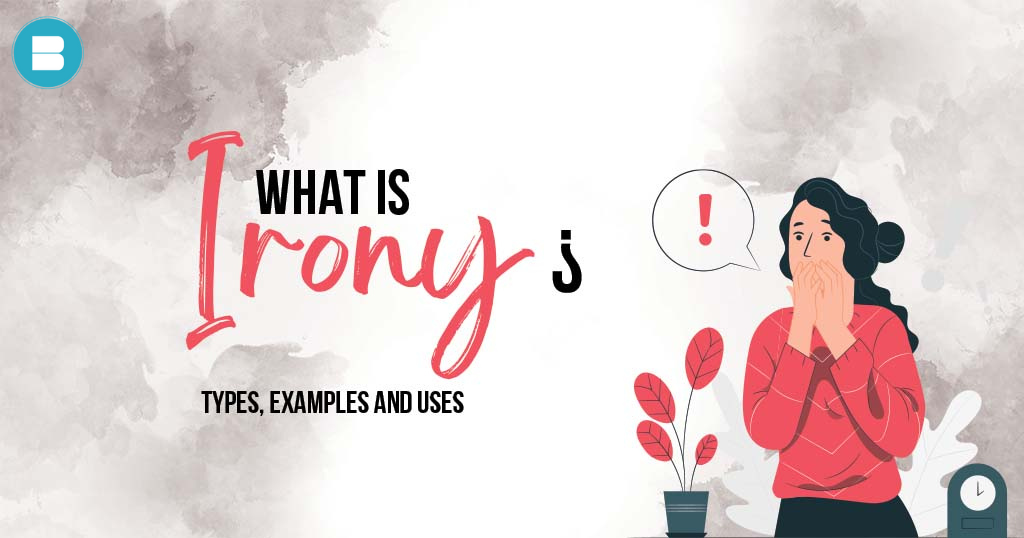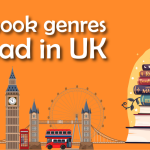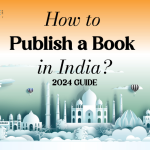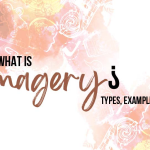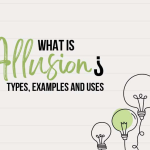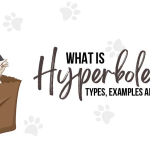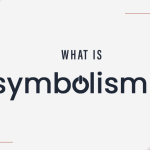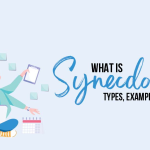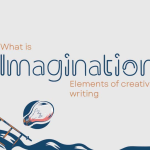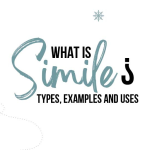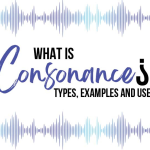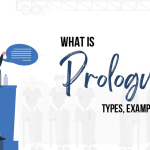Before I tell you what is Irony and how it has been used in the literature world, I’d like to quote one of the best quotes that could be a great example of Irony which is said by Gustave Flaubert – “Irony takes nothing away from pathos…”
Ah, irony – that mischievous trickster of language. We often see it as a tool for belittling and mocking, a way to lessen the emotional weight of a situation.
But this quote flips that notion on its head, declaring that irony has no power to diminish the heartache and pathos of life. How ironic, indeed!
Read: Here’s a list of Top 10 Drama Fiction Books of all Time.
Irony is the use of words to communicate a meaning that is diametrically opposed to what they technically mean. It is frequently utilised in literature and film. In literature, there are three types of irony: dramatic irony, linguistic irony, and situational irony. It is usually associated with a person’s wit.
When mentioned wit and being humourous about how we say a thing which technically means the opposite can also be confused with sarcasm.
Even though Sarcasm is a subtle form of verbal irony, Sarcasm and Irony are as similar as they are different. For example – Your friend told you a situation and their plan on how to deal with it. When you heard it, you came to a realisation that it was nothing but a gigantic blunder. Now I will show you how you say it ironically and sarcastically.
Irony: “Oh what a clever plan – I’m sure it will fail spectacularly.”
Sarcasm: “Oh what a clever plan – because clearly nothing can go wrong with this masterpiece of a strategy.”
In the ironic sentence, you are using irony by saying “Oh what a clever plan” in a sarcastic tone while implying that the plan will actually fail. Your tone and words do not match, as they are expressing the opposite of what you actually mean. This is a form of verbal irony.
In the sarcastic sentence, you are using sarcasm by saying “Oh what a clever plan” in a sarcastic tone while implying that the plan is not actually clever at all. Sarcasm is a type of irony that is often used to mock or ridicule someone or something, and it is conveyed through the use of irony and a sarcastic tone.
Read: A complete explanation of what is copyediting? & How can you do it by yourself.
Your words and tone do not match, as they are expressing the opposite of what they actually mean.
Different Types of Irony:
There are three major types of Irony –
- Situational Irony
- Dramatic Irony
- Verbal Irony
- Situational Irony
Situational irony is a type of irony that develops when there is a gap between what is expected and what actually occurs. It is a type of irony caused by an unexpected conclusion of a scenario or occurrence.
For example, if a fire station burns down, that would be an example of situational irony. The fire station is a place that is meant to protect against fires and keep them from spreading, but in this situation, the fire station itself has caught fire. This creates a sense of irony because the outcome of the situation is the opposite of what is expected.
Another example of situational irony is if a person buys a boat to escape the stresses of daily life, but then spends all of their time fixing and maintaining the boat, effectively increasing their stress levels. This is ironic because the boat, which was meant to be a source of relaxation and escape, has actually caused more stress for the person.
Situational irony can be used in literature, film, and everyday life to create a sense of surprise or humor, and it is often used to highlight the contradictions or incongruities in a situation. - Dramatic Irony
Dramatic irony happens when there is a disparity between what a character believes and what the reader or audience knows to be true. It is a type of irony caused by the audience’s awareness of events or information that the protagonists in a story lack.
For example, in Shakespeare’s play “Othello,” the character Othello thinks that his wife Desdemona is faithful to him, but the audience knows that she has been unfaithful. This creates a sense of dramatic irony because the audience knows something that the characters do not, and this knowledge adds an extra layer of meaning to the story.
Another example of dramatic irony is if a character in a horror movie is walking through a dark, abandoned house and is completely unaware that a killer is lurking just around the corner. The audience knows that the killer is there, but the character does not, which creates a sense of suspense and tension.
Dramatic irony can be used in literature, film, and theater to create a sense of tension, suspense, and humor, and it is often used to highlight the limitations of a character’s understanding or perspective. - Verbal Irony
Verbal irony is a form of irony that occurs when a speaker says one thing but means the opposite, often to mock or satirize the person or thing being referred to. It is a form of irony that is conveyed through words and requires an understanding of the context and tone in which the words are spoken.
For example, if someone says “Great weather we’re having!” on a rainy day, that would be an example of verbal irony. The speaker is saying that the weather is “great,” but they are using a sarcastic tone and implying that the weather is actually quite bad.
Another example of verbal irony from a book is from the novel “Pride and Prejudice” by Jane Austen. In the novel, Mr. Darcy is talking to Mr. Bingley about his sister, who has just married Mr. Darcy’s uncle. Mr. Bingley asks Mr. Darcy if he thinks his sister will be happy in her marriage, to which Mr. Darcy replies, “It depends on her husband’s manners.” This is an example of verbal irony because Mr. Darcy is actually being sarcastic and implying that his uncle has poor manners, which would likely make his sister unhappy in her marriage. This ironic remark adds depth and humor to the conversation between Mr. Darcy and Mr. Bingley.
Verbal irony can be used to mock or satirize a person or situation, and it can also be used to convey sarcasm or irony in a more subtle way. It is often used in literature, film, and everyday conversation to add humor and depth to a conversation or story.
You may also like: Positive Characters Traits And Why They Are Crucial
What is Irony and How it is used in Poetry?
Irony in poetry is a literary method that use discordance, incongruity, or a naive speaker to convey information other than the literal meaning of a poem. Irony is used by poets for a number of purposes, including satire or to convey a political point. Irony can be difficult to spot in poetry, but it is a rhetorical device that readers should be aware of.
Verbal irony is a type of irony in poetry in which the poet manipulates the tone to say the opposite of what the poem actually says. This type of irony, like sarcasm, is especially common in satire.
Read: Why are Literary Devices used? Different Types of Poetic/Literary Devices in Literature.
Situational irony is another application of irony in poetry. When a poet utilises a setting or metaphor that is discordant with the poem’s substance, the reader notices something new about the object at hand.
A poem may also contain dramatic irony, which is a type of irony in poetry in which a naive speaker says something with meaning beyond his or her own understanding. This rhetorical device is most common in poetry that employs an untrustworthy speaker as the poem’s voice.
Some examples of Irony in poems are mentioned below to help you understand how irony is used in rhythmic forms –
- “The Love Song of J. Alfred Prufrock” by T.S. Eliot: In this poem, the speaker is trying to express his love to a woman, but he is filled with self-doubt and insecurity. The ironic twist is that the speaker believes he is not worthy of love, but he is actually addressing his love to someone else.
- “The Road Not Taken” by Robert Frost: In this poem, the speaker reflects on the choices he has made in life and the paths he has taken. The ironic twist is that the speaker says he took the road less traveled, but he admits that it has made all the difference. This is ironic because the road that he chose was actually the more difficult and unconventional path, but it ended up being the more rewarding choice.
- “The Tyger” by William Blake: In this poem, the speaker is marveling at the beauty and power of a tiger, but the ironic twist is that the tiger is also a symbol of violence and destruction.
- “To His Coy Mistress” by Andrew Marvell: In this poem, the speaker is trying to persuade a woman to sleep with him, but the ironic twist is that he is using grandiose and extravagant language to do so, even though the speaker knows that they do not have much time left together.
You may also read: The Rise of Shakti by Megha Dinesh: Book Review
These are some of the books which are famous for their use of irony, which adds depth and complexity to the characters and themes in the stories.
- “The Great Gatsby” by F. Scott Fitzgerald: This novel is famous for its use of situational irony and verbal irony. The characters in the novel often have unexpected outcomes or experiences, and the characters often use ironic language to mock or satirize each other.
- “The Catcher in the Rye” by J.D. Salinger: This novel is famous for its use of verbal irony and situational irony. The main character, Holden Caulfield, is known for his sarcastic and ironic language, and the events of the novel often have unexpected or ironic outcomes.
- “The Cask of Amontillado” by Edgar Allan Poe: This short story is famous for its use of dramatic irony. The readers are aware of the main character’s plan to kill the other character, but the victim is unaware of this, creating a sense of dramatic irony.
- “The White Tiger” by Aravind Adiga: This novel is famous for its use of verbal irony and situational irony. The main character, Balram, uses sarcastic and ironic language to mock the corruption and inequality in Indian society, and the events of the novel often have unexpected or ironic outcomes.
- “The Hungry Tide” by Amitav Ghosh: This novel is famous for its use of situational irony and dramatic irony. The characters in the novel often have unexpected experiences or outcomes, and the readers are often aware of information that the characters do not have, creating a sense of irony.
- “The Namesake” by Jhumpa Lahiri: This novel is famous for its use of situational irony and dramatic irony. The readers are aware of events and information that the characters in the novel are not, creating a sense of irony.
- “The Alchemy of Desire” by Tarun Tejpal: This novel is famous for its use of verbal irony and situational irony. The main character, Darsheel, uses sarcastic and ironic language to mock the absurdity of modern life, and the events of the novel often have unexpected or ironic outcomes.
In conclusion, Irony is a great literary device with spectrum of shades that helps a writer to express themselves in more than one way. Irony is a powerful and adaptable literary element that can enhance the depth and complexity of any piece of literature.
Read: How to write story plots? Tips, Tricks & Types of Story Plots.
Irony has the ability to engage and captivate readers, whether it is used to create a sense of surprise, or humor, or to highlight the contradictions in a situation.
It’s no surprise that irony has been a popular tool for writers throughout history and will continue to be so in the future.
Let us know your favourite books that showcase incredible cases of Irony.
Happy Reading!

